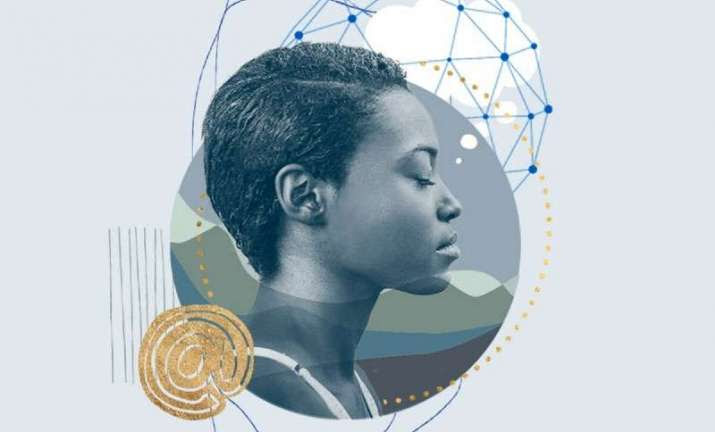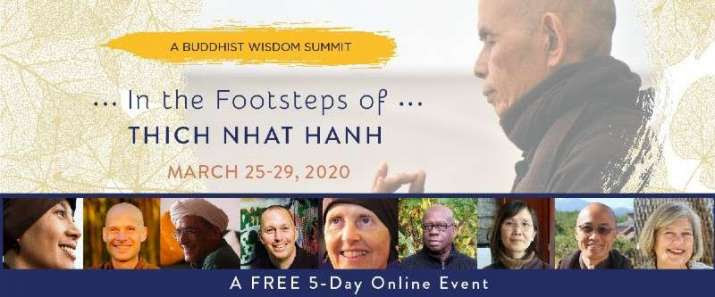 From insightla.org
From insightla.org
The coronavirus COVID-19 pandemic is the defining global health crisis of our time. Since its emergence late last year, the virus has spread to every continent except Antarctica. Cases are rising daily in Africa and South America, and Europe has taken over as the epicentre of the disease and more cases are now being reported every day than in China at the height of its epidemic.
Countries are racing to slow the spread of the disease by testing and treating patients, carrying out contact tracing, limiting travel, quarantining citizens, and cancelling large gatherings such as sporting events, concerts, and schools.
The pandemic is moving like a wave—one that may yet crash on those least able to cope.
With Buddhist centers and temples across North America closing their doors to the public due to the COVID-19 pandemic, many are offering programs and retreats that can be accessed online from the comfort of one’s home. A number of options from various traditions are now available.
Founded in 1966 by Namgyal Rinpoche, the Dharma Centre of Canada is a non-sectarian organization that provides teachings from a variety of different traditions. Having suspended all on-site programs, the center is offering online talks, including a bi-weekly video conference on “Overcoming the Fear of Illness: Meditation on Medicine Buddha – Guru Rinpoche and Other Dharma Topics.” (Dharma Center of Canada) The talks will target fears around illness, loss, and dying—concerns that are very relevant during the current pandemic. They will take place on Tuesdays, starting 27 March.
The Barre Center for Buddhist Studies (BCBS) is known for its selection of programs that explore an array of teachings emanating from early Buddhism. In response to the current health crisis, The BCBS has also moved some of its residential programs online. Participants can enjoy a course on “Expressing the Inexpressible in Zen Poetry” from 27–29 March and another on “Jhanas and Dependent Origination” from 9–23 April.
Maitripa College, a non-profit Tibetan Buddhist school, invites those who are interested to join their bi-weekly livestream on YouTube. Maitripa College president and teacher Yangsi Rinpoche will lead Vajrasattva practices on Thursdays and Medicine Buddha practices on Sundays.
The Spirit Rock insight meditation center is offering participants a breadth of programs to choose from, with a focus on insight (vipassana) and loving-kindness (metta) medita
In a statement on its website, Spirit Rock highlighted the importance of staying connected during the global crisis, as well as the detrimental financial effects that such situations can have on non-profit organizations:
The need for Dharma is stronger than ever as we navigate this new global health emergency. Together and individually, we can embrace these conditions as the context of our practice, grateful for the teachings and for one another during these complex times.
We have already been hearing from our online practitioners how comforting and inspiring it can be to connect virtually with Spirit Rock and, through us, with one another. Meditation and connection with a wider sangha are invaluable in navigating uncertainty.
We’re asking our community to support Spirit Rock financially as we convert to online-only teachings and as we increase accessibility by offering a by donation sliding scale fees through April 15. These are difficult times for non-profits, and Spirit Rock is no exception. We encourage you to pay at the highest level you are able to in support of Spirit Rock, our staff, and our sangha. (Spirit Rock)
Having temporarily suspended on-site services at Blue Cliff Monastery in New York and Deer Park Monastery in California, Dharma teachers from the Plum Village lineage are sharing their insights in an online Buddhist wisdom summit title “. . . In the Footsteps of Thich Nhat Hanh . . .” The summit began 25 March and runs through 29 March, featuring Dharma talks, guided meditations, and a selection of discussions by Thich Nhat Hanh from Plum Village’s archives. Registration for this event is currently open.
 From mindfulnessbell.org
From mindfulnessbell.orgDuring the summit’s opening welcome, Denise Nguyen, executive director of the Thich Nhat Hanh Foundation, summarized the event as follows: “It’s a special opportunity to connect deeply with the heart of our living Plum Village tradition and community. Now I know there’s a lot going on in the world right now, a lot of uncertainty,” she said. “We hope this summit can be a source of solidity and insight to help ground and calm you in your daily life.”
Despite the detrimental impact that COVID-19 has had on countries around the world, opportunities to be a part of and to support Buddhist communities continue to grow in this digital age.
But COVID-19 is much more than a health crisis. By stressing every one of the countries it touches, it has the potential to create devastating social, economic and political crises that will leave deep scars.
We are in uncharted territory. Many of our communities are unrecognizable from even a week ago. Dozens of the world’s greatest cities are deserted as people stay indoors, either by choice or by government order. Across the world, shops, theatres, restaurants and bars are closing.
Every day, people are losing jobs and income, with no way of knowing when normality will return. Small island nations, heavily dependent on tourism, have empty hotels and deserted beaches. The International Labour Organization estimates that 25 million jobs could be lost.












